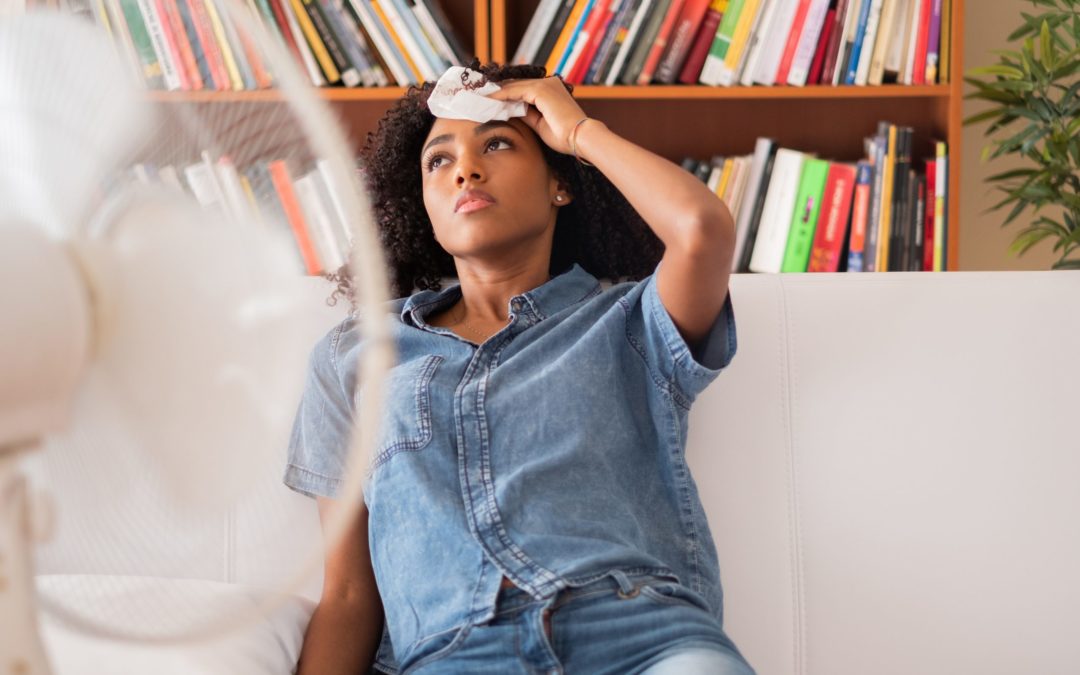The mercury isn’t the only thing rising as a heat wave grips our area. When the air sizzles, tempers flare, depression smolders, and suicide risks spike.
Studies have linked sudden increases in temperature to rising numbers of emergency department visits for behavioral health concerns and to a jump in suicides.
Furthermore, studies have found a rise in “depressive language” on social media during heatwaves. Researchers have been able to use this language to predict suicidal risk, so this is more than just an online bummer.
Also, a recent study found that young men who lost 1 percent of body mass to sweat experienced a decline in cognitive ability and an increase in anxiety.
Dangers of Heat Waves
For individuals with mental illness, substance use disorder, or developmental disability, a heat wave is more than an inconvenience.
Clinical Psychiatry News reports:
Extreme heat makes many people cranky, agitated, or listless. However, heat waves are not benign, uncomfortable periods; they have profound health risks tied to increasing rates of anxiety, depression, posttraumatic stress disorder, and even death. In fact, extreme heat is now considered to be the single largest weather-related cause of death, exceeding hurricanes, lightning, tornadoes, floods, and earthquakes combined.
In fact, individuals with mental illness are three times more likely to die in a heat wave than those without mental illness.
Additionally, extreme heat makes it difficult to think. This can make it challenging for individuals with behavioral health concerns and developmental disability to care for themselves properly and at a time when questionable decisions can have serious consequences.
The Power of Connection

Nearly every media story about the heatwave will include tips to check in on the elderly and on pets, because they are especially vulnerable.
But we also need to be vigilant about individuals with developmental disability or mental illness. If you know someone who has been struggling, give them a call. Or stop by for a quick chat. Bring a cold watermelon or a quart of ice cream!
Individuals were much more likely to ride out a heatwave without hospitalization if they had access to air conditioning, which makes perfect sense. But having social connection was almost as important in preventing crises.
If you are concerned that someone has become a danger to themselves or others, please contact our emergency services department at 540-373-6876. Here is a printable card to keep handy if you’re keeping an extra close eye on a loved one.
Keep Your Cool

Here are some tips for keeping your cool–and for helping others–during this heatwave:
- Stay hydrated. Drink water and avoid caffeine and alcohol.
- Slow down. Give yourself more time to complete tasks and rest when you need to.
- Check in on friends and family who have mental illness, substance use disorder, or developmental disability.
- Check your meds–or those of a loved one. Some medications exacerbate the effects of extreme heat. Find out and learn how to mitigate those effects.
- Close your blinds.
- Stay away from the sun–inside if possible and in the shade if not.
- While staying inside, be mindful of “extra” sources of heat: ovens, lights, computers, etc. If you don’t need them, don’t use them.
- Get wet. Try a quick swim in the pool or take an extra shower. Or, try splashing water on your face, wrists, or feet.
- If you don’t have air-conditioning, spend the hottest part of the day at the mall, a movie theater, etc. Or find a friend who will share their central air.
- Eat some cold melons. Or ice cream.
- Post some positive messages on your social media accounts.
Print out a quick reminder sheet.


